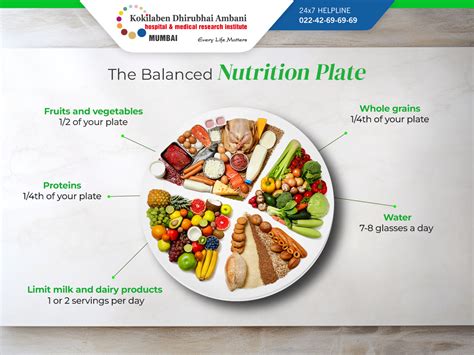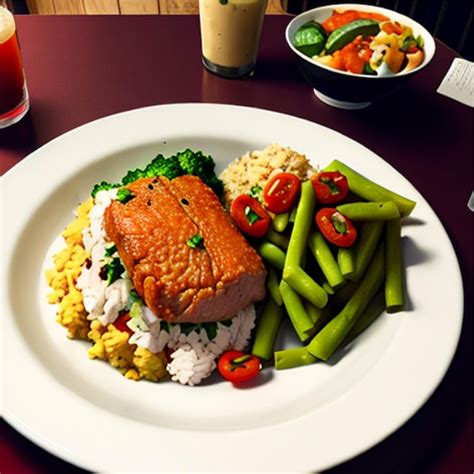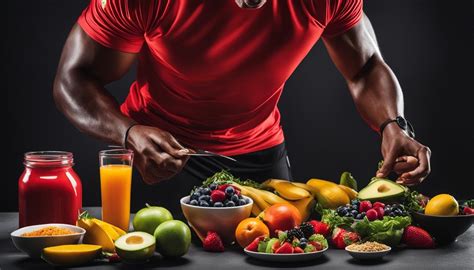Fueling Your Drive: Why Nutrition Matters for Busy Men
In the relentless pace of modern life, busy men often find their health goals, particularly sustained energy and fat loss, taking a backseat. Juggling work, family, and personal commitments can make consistent healthy eating seem like an insurmountable task. However, optimizing your daily fuel isn’t about restrictive diets; it’s about smart choices that integrate seamlessly into your busy routine, providing the steady energy you need to conquer your day and achieve your body composition goals.
This guide will cut through the noise, offering actionable strategies for busy men to transform their nutritional habits, leading to improved vitality, enhanced focus, and efficient fat loss.

The Core Pillars of Optimized Fuel
1. Prioritize Protein at Every Meal
Protein is the cornerstone of a busy man’s diet for several reasons. It’s highly satiating, helping to control hunger and reduce overall calorie intake, which is crucial for fat loss. Furthermore, protein supports muscle maintenance and growth, which is metabolically active tissue, further aiding in fat burning. Aim for 20-40 grams of lean protein at each main meal and snacks. Sources include chicken breast, fish, lean beef, eggs, Greek yogurt, and protein powder.
2. Embrace Smart Carbohydrates for Sustained Energy
Not all carbs are created equal. For sustained energy, focus on complex carbohydrates that provide a steady release of glucose into the bloodstream, preventing energy crashes. These include whole grains (oats, quinoa, brown rice), sweet potatoes, and a wide array of vegetables. Limit refined sugars and processed grains, which offer quick bursts of energy followed by inevitable slumps.
3. Incorporate Healthy Fats for Hormonal Balance & Satiety
Healthy fats are vital for hormone production, nutrient absorption, and long-term satiety. Don’t shy away from sources like avocados, nuts, seeds, olive oil, and fatty fish (salmon, mackerel). While calorie-dense, these fats play a crucial role in overall health and can help keep hunger at bay, supporting fat loss efforts.

Practical Strategies for Time-Crunched Schedules
Meal Prepping: Your Weekly Nutrition Hack
The single most effective strategy for busy men is meal prepping. Dedicate a few hours one day a week (e.g., Sunday) to cook larger batches of staples like grilled chicken, roasted vegetables, quinoa, or hard-boiled eggs. Portion them into containers for grab-and-go meals throughout the week. This eliminates decision fatigue and the temptation for unhealthy last-minute choices.

Smart Snacking to Beat the Energy Slump
Strategic snacking can prevent overeating at main meals and maintain stable blood sugar. Opt for protein-rich and fiber-filled options:
- Greek yogurt with berries and a sprinkle of nuts
- Apple slices with almond butter
- Handful of mixed nuts and seeds
- Vegetable sticks with hummus
- Hard-boiled eggs
- Protein shake
These snacks provide sustained energy and satiety.
Quick & Easy Meal Ideas
Even without extensive meal prep, you can create healthy meals quickly:
- Overnight Oats: Mix oats, milk (dairy or non-dairy), protein powder, chia seeds, and fruit in a jar the night before.
- Sheet Pan Dinners: Toss protein (chicken, sausage) and vegetables with olive oil and spices, roast on a single sheet pan.
- Smoothies: Blend protein powder, spinach, berries, healthy fat (avocado or nut butter), and liquid for a nutrient-dense meal on the go.
- Salad in a Jar: Layer dressing at the bottom, then hard vegetables, grains, protein, and leafy greens on top.

Hydration and Lifestyle Factors
Don’t Forget Water
Often overlooked, adequate hydration is critical for energy, metabolism, and appetite control. Dehydration can mimic hunger, leading to unnecessary snacking. Aim for at least 8-10 glasses of water daily, and more if you’re active. Keep a water bottle handy as a constant reminder.
Sleep and Stress Management
Even the best nutrition plan can be derailed by poor sleep and chronic stress. Lack of sleep impairs hormone regulation (ghrelin and leptin), increasing hunger and cravings for unhealthy foods. Stress elevates cortisol, which can promote fat storage, especially around the midsection. Prioritize 7-9 hours of quality sleep and incorporate stress-reduction techniques like meditation or light exercise.

Conclusion: Small Changes, Big Results
Optimizing your daily fuel for sustained energy and fat loss doesn’t require a complete overhaul overnight. Start with one or two actionable changes: incorporate more protein, try meal prepping for a few days, or commit to better hydration. Consistency is key. By making smarter, more intentional food choices and integrating them into your busy schedule, you’ll not only achieve your fat loss goals but also experience a significant boost in energy, focus, and overall well-being. Fuel your drive, and unleash your full potential.




